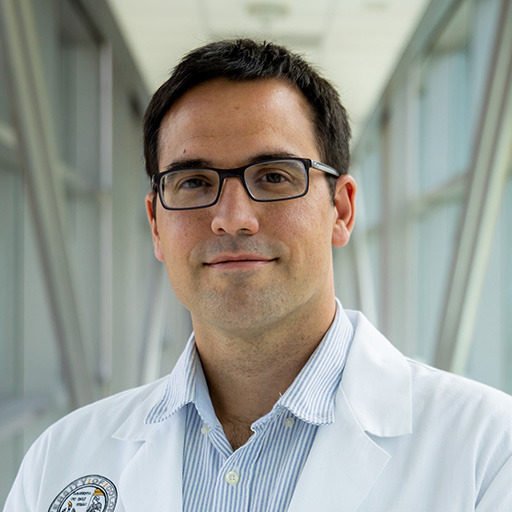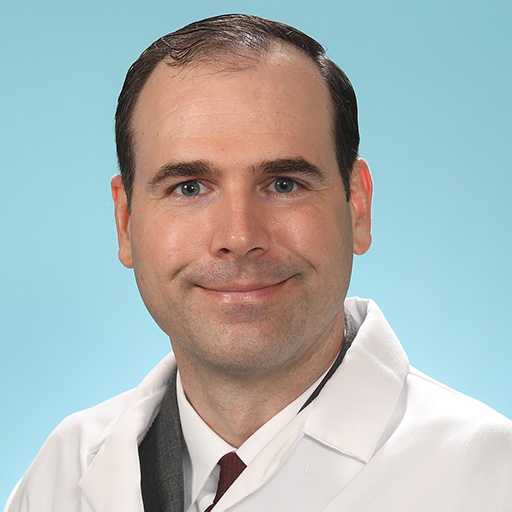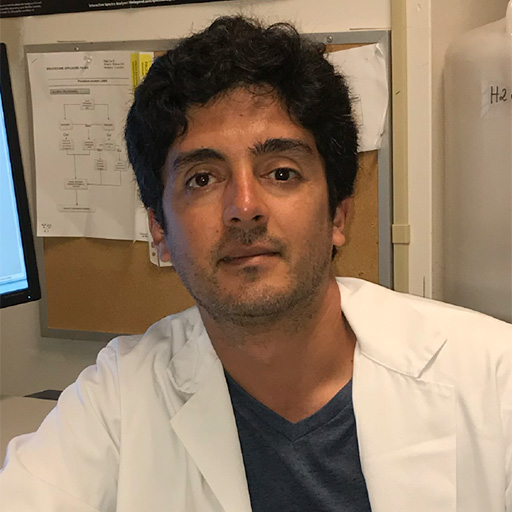Exosomes and Autophagy: Suspicious Partners in Drusen Biogenesis and AMD

Principal Investigator
Miguel Flores Bellver, PhD
University of Colorado Anschutz Medical Campus
Aurora, CO, USA
About the Research Project
Program
Award Type
New Investigator Grant
Award Amount
$428,936
Active Dates
July 01, 2024 - June 30, 2027
Grant ID
M2024008N
Acknowledgement
Mentor(s)
Joseph Brzezinski, PhD, University of Colorado Anschutz Medical Campus
Goals
The goal of this study is to understand how autophagy and exosome pathways in RPE and retinal cells contribute to drusen formation and AMD progression and to identify potential biomarkers for AMD.
Summary
Age-related macular degeneration (AMD) affects a part of the retina called the macula responsible for clear vision. A damaged macula will lead to central vision loss, significantly affecting the quality of life affected by this disease. There is no treatment for dry AMD. The research team seeks to understand how little vesicles, called exosomes, that retinal pigment epithelium (RPE) and retinal cells secrete and contain many cellular bioproducts contribute to drusen formation and the progression of AMD. They will also identify bioactive molecules released in exosomes that could serve as potential biomarkers for AMD.
Unique and Innovative
Ours relies on cutting-edge technologies: stem cell differentiation, in vitro disease modeling, exosome purification, and biochemistry. If successful, our aims will clarify the impact of autophagy on exosome cargo composition; define the contribution of exosomes to drusen formation; elucidate if exosomes release serves as a cellular mechanism to bypass the autophagic defect in AMD; uncover AMD-specific cargo contained within exosomes. Since these vesicles travel through biofluids, our studies will be used to test whether circulating exosomes serve as biomarkers of AMD; reveal the contribution.
Foreseeable Benefits
The goal is to bridge basic research on AMD with clinical application by transforming our understanding of AMD pathophysiology and drusen formation. This involves preclinical validation, investigating interventions targeting autophagy and exosomes, biomarker development, diagnostic tool integration, therapeutic development, and patient stratification for personalized treatments. Through these strategies, we aim to improve AMD diagnosis, treatment, and patient outcomes.
Grants
Related Grants
Macular Degeneration Research
The Novel Role of an Intracellular Nuclear Receptor in AMD Pathogenesis
Active Dates
July 01, 2024 - June 30, 2026

Principal Investigator
Neetu Kushwah, PhD
Current Organization
Boston Children’s Hospital
Macular Degeneration Research
A Newly Discovered Eye Immune Environment in Age-Related Macular Degeneration
Active Dates
July 01, 2023 - June 30, 2025

Principal Investigator
James Walsh, MD, PhD
Current Organization
Washington University in St. Louis
Macular Degeneration Research
Tracking How Rare Eye Immune Cells Respond to Damage in Age-Related Macular Degeneration
Active Dates
July 01, 2023 - June 30, 2025

Principal Investigator
Abdelilah Majdoubi, PhD
Current Organization
Yale University



